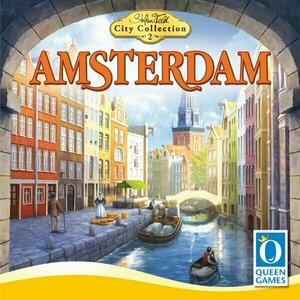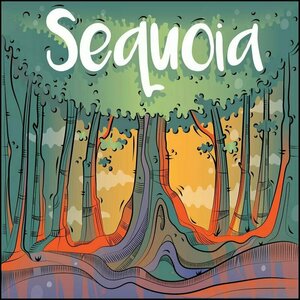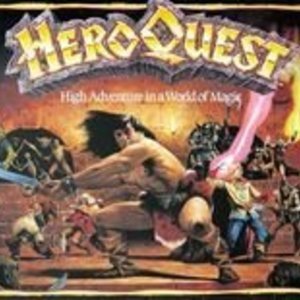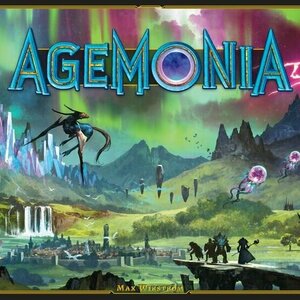Purple Phoenix Games (2266 KP) rated Doctor Who: Time of the Daleks in Tabletop Games
Sep 2, 2021
Doctor Who: Time of the Daleks (which I will carefully refer to as DW from here on out though I would never abbreviate to Dr.) is an adventure dice racing game, even though the only official tag is dice. In it, players take on the roles of different Doctor regenerations and will travel through time and space collecting companions, Timey-Wimey cards, and Sonic Charges in order to manipulate dice rolls to defeat Dilemmas and Time Anomalies that pop up at the absolute worst times.
To setup, follow the rulebook instructions – there are just too many components to detail here. The game takes up quite a bit of table space, so do make sure to use your largest table.
On a player’s turn they will be adding Sonic Charges, shuffling up companions, and rolling the TARDIS die to determine travel. Once at a location, the Doctor (and subsequent harem) can Adventure by assessing the challenge of dice results printed on the Location board plus the Dilemma disc combined. It is these icons that must be rolled (and possibly manipulated) in order to have a successful adventure. If successful, typically this involves a reward of moving the TARDIS pawn on the main Web of Time board closer to Gallifrey, in addition to other rewards. Failure on an adventure will typically result in the Dalek ship being moved further from Skaro and closer to Gallifrey.
Once the Doctors have had their turn, the Daleks will take a turn. Immediately move the Dalek ship one space on the Web of Time track towards Gallifrey, and if they have reached Gallifrey before any Doctor, or on the same turn as a Doctor, the Daleks win and the Doctors all lose. If not, play continues in this fashion until one of those win conditions are met, along with a couple more loss conditions I will leave you to discover.
This is a very pared-down synopsis of the rules, and I have intentionally left out several rules so as not to bog down my paraphrasing with minutia. Take this into consideration when determining if this is the game for you.
Components. All in all the components in DW are absolutely stellar! All the cardboard is thick and features great art and screencaps (which is a polarizing subject that I simply don’t mind). The dice are great quality, though I wish they had chosen a different color for the blue dice so that the TARDIS die would be the only blue in the box. The minis are great, and have interchangeable bases because throughout the game the Doctors may have to regenerate, thus switching to a different Doctor mid-game (awesome mechanic for this IP by the way).
Let me tell you why I like this DW game and why I do not. Firstly, the game is just too hard for me. Maybe it’s how I roll the dice, but I feel I am almost never in possession of enough resources to be able to reroll or manually manipulate my dice results enough to have the requisite amount of successful adventures. Some challenges require the Doctor to roll six dice, but then there are restrictions in play that drop a Doctor’s dice pool down to six, thus creating a you-must-roll-EXACTLY-what-you-need-to-win scenario that is tough to swallow for a dice game. Also, this next part is completely personal opinion, I wish that 10 was included in the starter box. I got my 11, and I appreciate that, but I feel like 10 is the most widely-popular Doctor in the franchise, or at least in New Who, so the ball was dropped here. I know I can purchase 10 in an expansion pack with 5 (and kudos to whomever made THAT combination), but I want him NOW.
Time travel games are so difficult to pull off, and with Doctor Who you HAVE to consider that time travel will play a very important part in gameplay. I believe this title handles it well, and even allows for multiple Doctors to work together (let’s not talk about time paradoxes for now). That is great and allows for excellent cooperative play, so I applaud the designer for that. I also enjoy the different abilities given by each different regeneration as well as what the companions each bring to the table. Perhaps a companion will add certain colors of dice to the Dice Pool, or allow the Doctor to switch out some of his generic dice for stronger and more specific dice, or simply allow rerolls of certain colors of dice. I dig that a lot. And seeing my precious companions in the game matched up to their Doctors fills me with a sense of nostalgia that I just do not feel in other games.
While this has been the subject of much deliberation on my part, I will be keeping my copy of the game, and will most definitely be adding 5 and 10 to the mix. I really want to like this game more than I do, and maybe having 10 in my arsenal is enough to do it, though I have my doubts. I love the Doctor Who IP and love dice games. I think this is a good game overall, and will continue to explore it with other gamers. Something will click, I’m sure of it. Purple Phoenix Games gives this one wibbly-wobbly 8 / 12. If you need a difficult dice game in your collection and also love the Doctors, pick up a copy. But also do yourself a favor and grab a copy of any expansion that includes your favorite Doctor – you will thank me later. Spoilers, sweetie, that’s coming in tomorrow’s post.
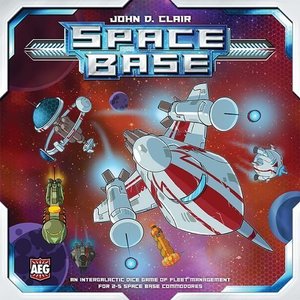
Space Base
Tabletop Game
In Space Base, players assume the roles of Commodores of a small fleet of ships. Ships begin docked...
BoardGames SpaceGames
Purple Phoenix Games (2266 KP) rated Sequoia in Tabletop Games
Mar 17, 2021
Sequoia is a game of dice rolling and area majority in which players are trying to grow the largest trees across different forests. To setup the game, lay out the 11 forest cards on the table within reach of all players, and randomly assign a 1st and 2nd place token to each card. Each player receives 5 dice and 20 tree tokens in their chosen color. The game is ready to begin!
On each turn, players will simultaneously roll their 5 dice – keeping the results secret from all other players! After rolling, players will create 2 pairs using 4 of their dice (one will be left out). Everyone reveals their pairs at the same time, and will place a tree token on the card that matches each of their dice pairs. For example, my pairs might be a 5 and a 2, and a 6 and a 6, so I would put a tree token on the 7 and 12 forest cards. Play continues in this manner (rolling dice, creating pairs, and placing tree tokens), until players have placed all of their tokens. Once all tokens have been placed, the game moves to the scoring phase. For each forest card, the 1st and 2nd place tokens go to the players who have the most and 2nd most tree tokens on the forest card. Once all cards have been scored, count up final points, and the player with the most points wins!
I have to start off by saying that Sequoia really surprised me. I was expecting a fast, light game, and that’s what I got. But I also got a game with a fun amount of player interaction and strategy that keeps all players engaged. You may not know what forest cards a player will choose each turn, but you can see who has already played tree tokens to each card, which can help drive your strategy. Do you want to directly compete with everyone and really pile on the tokens to win 1st place on a card? Or do you want to spread your tokens around to as many forest cards as possible, and hopefully maximize points that are otherwise being ignored by opponents? Especially since the 1st and 2nd place tokens are randomly assigned and have differing values, you really don’t know which forests will yield the highest points until the end of the game. Sequoia is a Yahtzee-esque game that allows direct player interaction, and that elevates the overall gameplay for me.
Let’s talk about components for a minute. These components are great. The forest cards are a nice thick card stock. The tree tokens and 1st/2nd place tokens are all good chunky bits that will definitely hold up over time. And the dice are nice little d6’s that are easy to read and fun to manipulate. The color matching with the dice and tree tokens is also really nice, and I appreciate that uniformity for each player color. All in all, a high quality production for such a small game.
If you ask me, I think Sequoia is a perfect filler game. It is super fast to teach and play, the setup/cleanup takes literally seconds, and it provides an engaging and fun gameplay. Beyond being a filler game, it is a great small standalone game as well. Want something fast to play while the oven is pre-heating for dinner? Pull out Sequoia! I also love that it is simple enough for younger players to understand – it is a numbers game, but you can also visually see what your opponents are working towards, and that lends itself to a good amount of player interaction. Definitely a game that I can see getting a decent amount of table time in my group! Purple Phoenix Games gives this one a sky-rocketing 8 / 12. Check it out, you might be surprised!
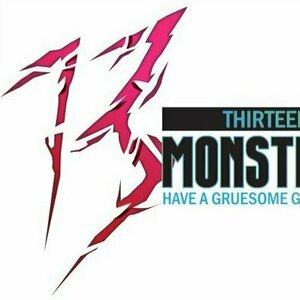
13 Monsters
Tabletop Game
13 Monsters is a tabletop game that requires skill, memory and just a bit of luck. Devise the...
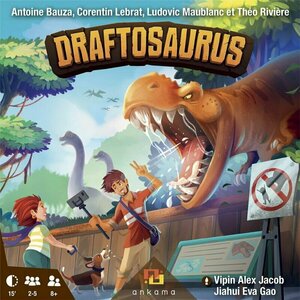
Draftosaurus
Tabletop Game
Your goal in Draftosaurus is to have the dino park most likely to attract visitors. To do so, you...

Flash Point: Fire Rescue
Tabletop Game
A wild cooperative game in the same light as the popular Pandemic. You are fire fighters takes with...
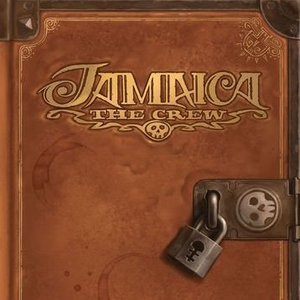
Jamaica: The Crew
Tabletop Game
An expansion to the Jamaica Game: Jamaica: The Crew is a set of twenty characters, each with a...
Boardgames ExpansionsforGames Pirategames

